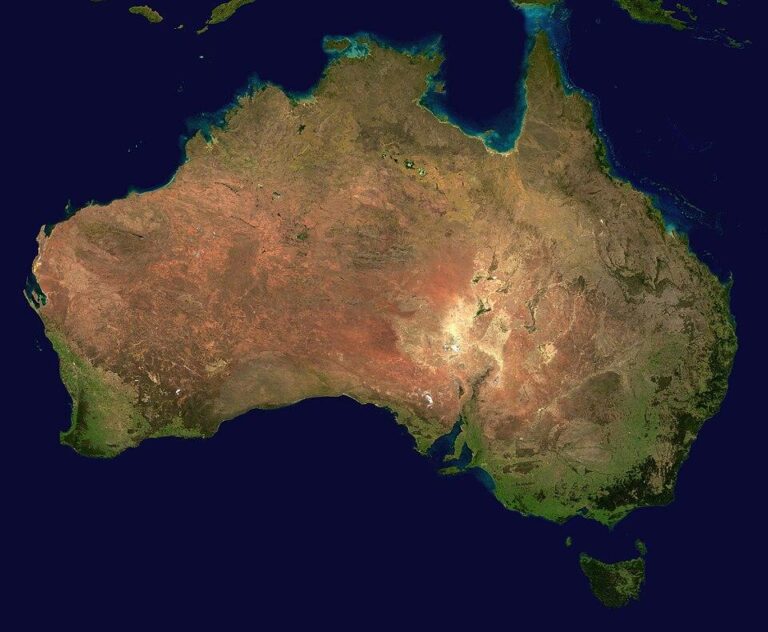Australia is set to officially recognise the State of Palestine in September, marking a significant shift in its foreign policy, according to a report by the BBC. This move aligns Canberra with a growing number of countries acknowledging Palestinian sovereignty, and is expected to impact diplomatic relations in the Middle East. The decision comes amid ongoing tensions in the region and international calls for renewed efforts toward peace.
Australia’s Decision to Recognise Palestinian State Marks Significant Shift in Middle East Policy
In a groundbreaking move, Australia is set to formally recognise Palestine as a sovereign state starting this September, signalling a major recalibration of its Middle East policy. This decision diverges from Australia’s previous stance, which aligned closely with Western allies prioritizing direct negotiations between Israel and Palestine. The government’s announcement reflects growing international pressure and acknowledges the evolving geopolitical landscape in the region. Observers note this shift could influence diplomatic relations, not only with Israel but also with key players in the Arab world.
The recognition has prompted diverse reactions across political spectrums and international circles. Key points surrounding the announcement include:
- Support from pro-Palestinian advocacy groups hailing it as a step towards justice and peace.
- Cautious responses from Israeli officials, emphasizing the need for continued dialogue despite diplomatic tensions.
- Potential impact on Australia’s trade and security partnerships in the Middle East.
| Aspect | Previous Policy | New Direction |
|---|---|---|
| Diplomatic Recognition | No formal recognition of Palestine | Formal recognition set for September 2024 |
| Middle East Alignment | Strong alignment with Israel and Western allies | More balanced approach, engaging with Palestinian authorities |
| Trade and Security | Established partnerships primarily through Israel and key Western allies | Exploring new partnerships in Arab countries and Palestine |
Implications for Australia’s Diplomatic Relations with Israel and Regional Stakeholders
Australia’s upcoming recognition of the Palestinian state signals a bold recalibration of its Middle East policy, likely to reverberate across diplomatic channels. For Canberra’s relationship with Israel, this move may introduce a phase of tension, as it is perceived as undermining Israeli sovereignty claims amidst a complex geopolitical backdrop. However, Australian officials emphasize that this decision does not diminish their commitment to Israel’s security or the peace process, striving instead to balance historical alliances with evolving regional realities.
The decision is also expected to resonate with key regional stakeholders, opening new avenues for dialogue and cooperation within the Arab world. Stakeholders such as Jordan, Egypt, and the Gulf Cooperation Council (GCC) countries may interpret Australia’s stance as a gesture acknowledging Palestinian aspirations, potentially strengthening ties between Canberra and influential Middle Eastern governments. This recalibration could yield diplomatic dividends, including:
- Expanded diplomatic networks facilitating greater engagement on conflicts and trade.
- Enhanced collaboration on counterterrorism and regional security frameworks.
- Increased influence in multilateral forums addressing Middle East peace.
| Stakeholder | Potential Reaction | Impact on Relations |
|---|---|---|
| Israel | Cautious, possible diplomatic strain | Requires careful dialogue to maintain security ties |
| Jordan | Supportive, endorses Palestinian recognition | Likely to deepen strategic cooperation |
| G It looks like the table in your post was cut off. Here is a continuation based on the content and style you’ve used so far. Let me know if you want me to complete or adjust anything further. | ||
| Israel | Cautious, possible diplomatic strain | Requires careful dialogue to maintain security ties |
| Jordan | Supportive, endorses Palestinian recognition | Likely to deepen strategic cooperation |
| Egypt | Moderately supportive, cautious optimism | May enhance joint peace initiatives |
| Gulf Cooperation Council (GCC) | Generally positive, could encourage regional dialogue | Potentially strengthens economic and security partnerships |
| Impact Area | Recommended Action | Priority Level |
|---|---|---|
| Trade & Investments | Re-examine trade agreements, diversify partners | High |
| Diplomatic Relations | Increase engagement with Middle Eastern and allied countries | Medium |
| Public Perception | Implement transparent messaging strategies | High |
Closing Remarks
Australia’s forthcoming recognition of the Palestinian state marks a significant shift in its foreign policy, reflecting evolving dynamics in the Middle East and international diplomacy. As Canberra prepares to formalize this stance in September, the move is expected to influence Australia’s relations with both Israel and Palestine, as well as its role within the global community. Analysts will be watching closely to assess the broader implications of this decision on regional peace efforts and Australia’s strategic alliances.




